Foods And Drinks To Avoid If You Are Feeling Tired
Some types of food really help recovery from tiredness by providing essential nutrients, while other foods can impede your progress to better health and can make you feel worse.
There are two sorts of food and drink you should avoid if you’re suffering from tiredness (whatever the specific reason for it is). They are:
- Food and drink which make your blood sugar spike and give you a temporary lift of energy followed by a quick let down
- Foods which deplete your body of vital nutrients and rob you of your energy trying to deal with them
In other words, you have to look at both the short term and the long term effect of food and drink on your body.
Foods and drinks that make you feel tired
Foods That Cause Blood Sugar Fluctuations
Even if you’re not diabetic, it’s good to keep your blood sugar as stable as possible. Simple carbohydrates (such as foods made with white flour and sugar e.g. cakes, sweet pies, and pastries) will make your blood sugar go up. You may be eating them to give yourself some energy and they may even do that temporarily, but soon afterwards both your mood and your energy levels are likely to come down with a crash as blood sugar levels suddenly fall. The higher the glycemic Index of food, the faster the sugar will enter your bloodstream and the sooner you are likely to crash (please seeGlycemic index and blood sugar fluctuationsandGlycemic index of common foodsfor more detail). Try to choose low glycemic index foods if you want a stable source of energy.
Caffeine
Caffeine (which is in coffee, tea, chocolate and many colas) peps you up for a short while by stimulating the production of insulin. But then you crash, in the same way you do with excess of sugar. Additionally, most of the chocolate sold is full of sugar which will increase the effect of the swing of insulin up and down (please seeCaffeine and tirednessfor more detail).
Alcohol and Sugary Beverages
Most alcohol is very high in sugar, so drinking will make you feel tired because you will set off the sugar/insulin roller-coaster. If you do consume alcohol, make sure that you do it on a full stomach, as this will help to buffer the effect of the alcohol to some degree. It is better avoided altogether if you’re suffering from tiredness. Try to avoid colas and sweetened fruit drinks for as many of them contain huge amounts of sugar.
High Fat Foods
Foods which are high in fat can also make you feel lethargic and sluggish. This is because blood will be diverted from the brain to deal with the heavy work of digestion and so less energy overall is available for mental activity. Be especially careful of this effect before exams and other occasions when you need to be able to think clearly and quickly.
Tryptophan Rich Foods
There is an ingredient in some food which is not bad for you but will make you sleepy. This is tryptophan, which is found in milk, turkey and other common foods. You can use this to your advantage at night by eating or drinking food and drink which is high in tryptophan when you wish to start the wind-down to sleep.
Foods that deplete your body of vital nutrients
If you are recovering from tiredness, you will want to avoid stressing your body as much as possible. Aim for simple, whole foods, home cooked (if possible) and unprocessed.
Food With Artificial Additives
There are many substances in modern food which are totally new chemical compounds and so our bodies haven’t evolved ways of dealing with them. Many of the additives and colourings that are added to fast foods and ‘convenience’ foods or fake foods (looking like real food but made of synthetic rather than natural substances) are in this category. Although food becomes more appealing in appearance and in taste, the results are toxic. They make the body more acidic and force the adrenal glands to work overtime, which will tire you even more.
Pesticide Residue in Food
Non-organic meat, poultry, and milk often contain high levels of antibiotic residue which will decrease your normal gut bacteria and lead to increase of bad or pathogenic bacteria. It’s best to avoid factory farmed produce as far as possible and buy organic where you can. The same advice applies to fruits and vegetables as many of them are sprayed with fertilisers and pesticides which often accumulate in the body as there no way to excrete them. Over time, this can become yet another toxic load for the body to carry, and is exhausting.
Trans Fats
The body needs a certain amount of fat, so going on a low fat diet is really self-defeating, and will make you more tired as your metabolism won’t function optimally. But the quality of the fat you consume is important. Again, select natural substances such as butter, eggs, coconut oil, and olive oil if you want to keep energy levels high and cravings at bay. The fats to avoid are those which have been processed, and their molecular structure has been altered. The body can’t recognize these new compounds and doesn’t accept them as food. Instead they become toxins, which have to be dealt with, putting a further load on your metabolic resources. They are the heat-processed poly-unsaturated oils (or trans fats) which are unfortunately used in many pre-packaged foods. Avoid them by cooking yourself, or being prepared to read labels on food very carefully. Make sure that you use oil which is cold -pressed or expeller-pressed.
Finally, make sure you eat enough calories for your daily requirements. You need a balance of protein, carbohydrates and fat in order to function optimally. (For more information about this please seeHealthy diet for when you are feeling tired).

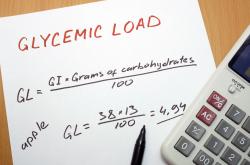
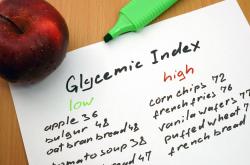

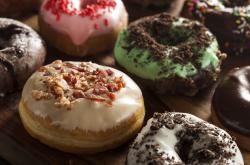
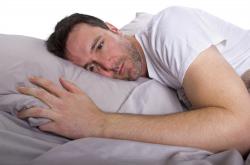
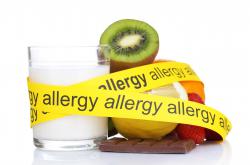


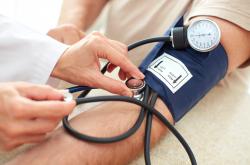








Leave a comment